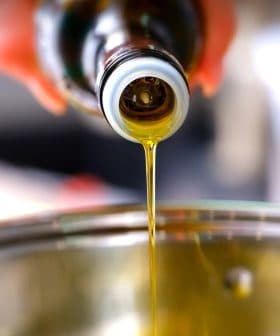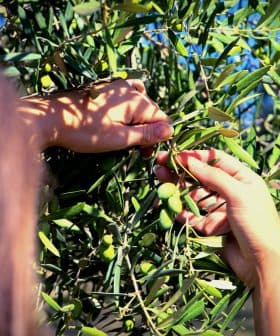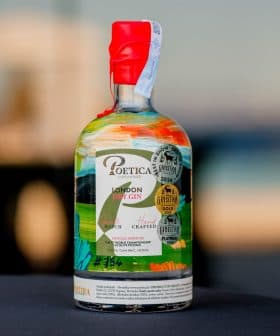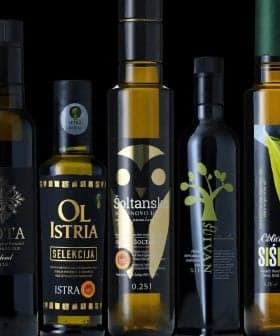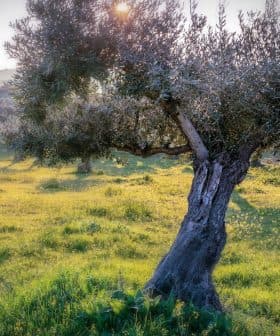A Low-Fat Vegan Diet May Lower LDL Cholesterol More than An Olive Oil-Enriched Diet
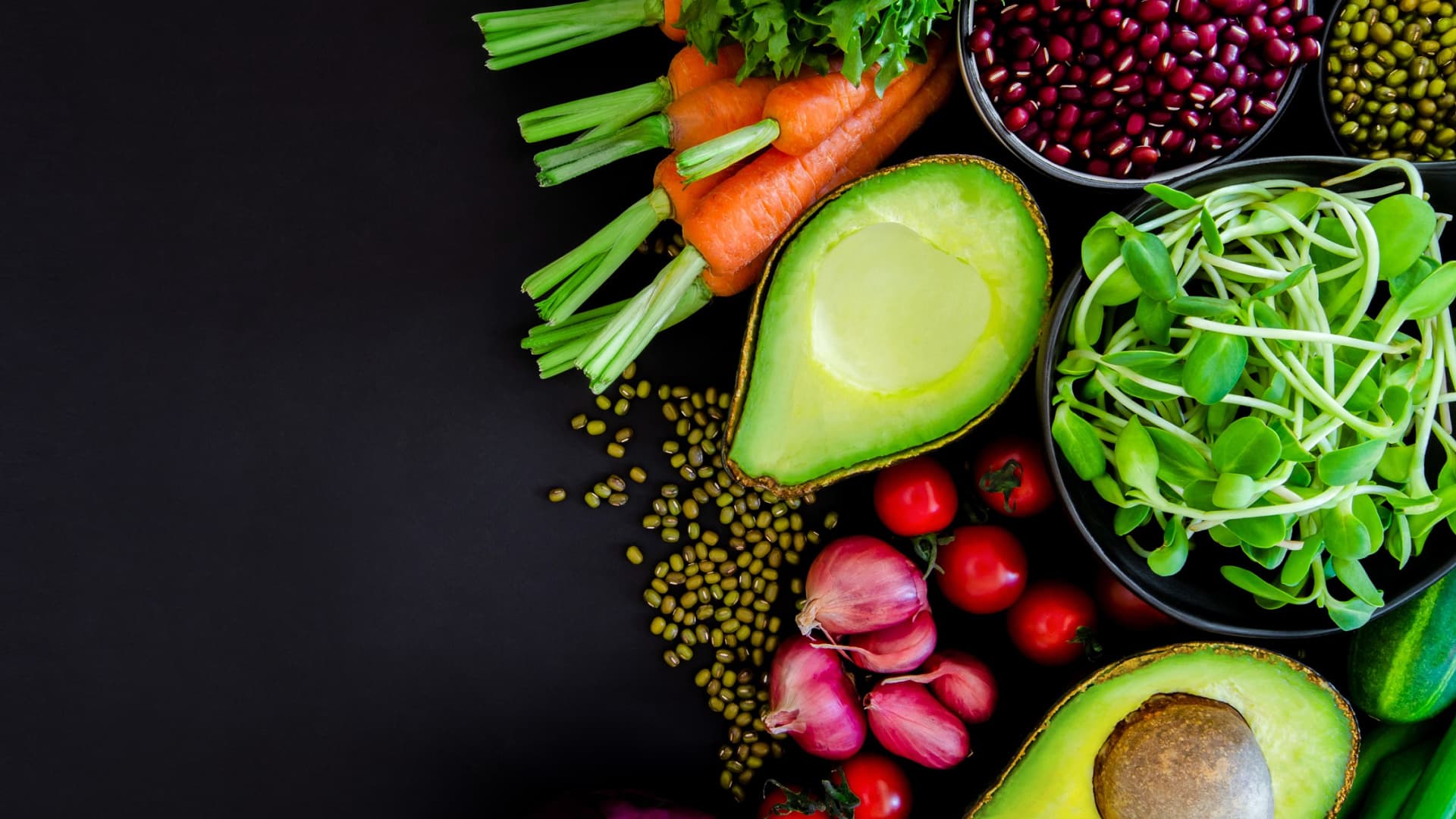
A study published in the Journal of the American Heart Association found that a low-fat vegan diet may lower LDL cholesterol levels more than a vegan diet supplemented with extra virgin olive oil in individuals at high risk for cardiovascular disease. While both diets showed health benefits, the study highlighted that the amount of added fats, including extra virgin olive oil, can affect overall energy balance and health markers.
New research indicates that following a low-fat vegan diet without extra virgin olive oil may lower LDL cholesterol levels in individuals at high risk for cardiovascular disease more than a vegan diet supplemented with extra virgin olive oil.
The cross-over study, published in the Journal of the American Heart Association (JAHA), found that individuals lost more weight and demonstrated lower LDL cholesterol levels after following a low-fat diet than the olive oil-enriched diet. However, some prominent researchers have criticized the study design.
“There’s some controversy and debate in the cardiovascular disease world around the effect of vegetable oils, including extra virgin olive oil, on risk factors,” said Andrea Krenek, a researcher at the University of Florida and co-author of the study.
See Also:Health News“Mediterranean diets usually include a lot of extra virgin olive oil, while low-fat, plant-based diets often recommend avoiding it,” she added. “However, both diets are known to reduce heart disease risk.”
“This hadn’t yet been studied to our knowledge within a whole-food, plant-based vegan diet, so we aimed to design a study to investigate this research question,” Krenek explained. “There hasn’t been much previous evidence aiming to evaluate whether extra virgin olive oil specifically yields risk reduction compared to the rest of the plant-based pattern.”
The trial involved 40 people who were at risk for atherosclerotic cardiovascular disease. They followed two vegan diets, each for four weeks with a one-week washout period.
In one diet, participants used four tablespoons of California Olive Ranch extra virgin olive oil each day. They were instructed to consume the olive oil raw; otherwise, no direction was given on when or how to consume it. In the other diet, participants were told to use as little olive oil as possible, less than one tablespoon daily.
Both diets included whole fruits, vegetables, whole grains, legumes, nuts and seeds, excluding animal-based foods.
Between the two diet phases, participants had a one-week washout period in which they were allowed to return to their usual eating habits. This break is a common research practice to ensure that the first diet does not affect the results of the second one.
Researchers collected data on participants’ metabolism, clinical health, behavior and diet at the start and end of each diet period. As participants followed each diet, researchers measured how each affected them personally.
“Prior studies have shown that the processing of olive oil, spanning from refined to virgin to extra virgin, can impact lipid and inflammatory markers, so we provide extra virgin olive oil, which is also consumed in Mediterranean diets,” Krenek said.
The scientists found that both diets offered health benefits. “Both the high and low extra virgin olive oil diets reduced heart disease risk factors, including LDL cholesterol levels, compared to typical diets that include animal products,” Krenek said.
LDL cholesterol is often called “bad cholesterol” because it deposits plaque in the artery, which can build up and increase the risk of heart disease.
However, Krenek said there were significant differences between the two diets, particularly in key markers for heart disease risk.
“The low extra virgin olive oil diet yielded greater LDL cholesterol and lipid-lowering compared to the high extra virgin olive oil diet,” Krenek said. “When evaluating by diet order, those who started with the high extra virgin olive oil, then transitioned to the low extra virgin olive oil had a reduction in LDL.”
“In contrast, those who started with the low extra virgin olive oil, then added extra virgin olive oil for the second four weeks, low to high, had an increase in LDL,” she added. “This gave some interesting insight to inform future research questions.”
Overall, both diets reduced several important health markers related to heart health and inflammation.
Participants in the study experienced a reduction in body weight during both diet phases, with more weight loss observed during the low-fat diet.
The researchers said the weight loss suggests that even within a whole-food, plant-based vegan diet, the amount of added fats, including extra virgin olive oil, can affect overall energy balance and subsequent health markers.
The researchers observed increased dietary fiber consumption during both diet phases, which they said helped lower LDL cholesterol.
They added that the shift to unsaturated fats from whole foods and reduced saturated fats likely contributed to positive health outcomes.
See Also:Olive Oil Metabolites Linked with Improved Cardiovascular Disease OutcomesAccording to Krenek, the most interesting findings of the study include that “both low and high extra virgin olive oil within a whole food, plant-based vegan diet support heart disease risk reduction compared to standard omnivorous patterns, though lower intake may yield greater lipid-lowering compared to relatively greater intake.”
“The addition of extra virgin olive oil after consuming smaller amounts may impede risk reduction,” she added.
However, Mary Flynn, the founder of the Olive Oil Health Initiative of Brown University’s Miriam Hospital, critiqued the study’s objectives and methodology.
“Extra virgin olive oil does not typically lower LDL cholesterol, and that has been known for a long time. Extra virgin olive oil will increase HDL and improve HDL function,” she said. “Polyunsaturated fats will lower LDL more than monounsaturated fats, but they will also oxidize the LDL, and oxidized LDL contributes to atherosclerosis.”
Flynn added that extra virgin olive oil’s primary health benefits regarding cardiovascular disease come from its phenols and not the fat.
She pointed to the results of a 2023 review for which she was the lead author. The study found that “extra virgin olive oil can decrease LDL‑c for baseline values greater than 120 milligrams per deciliter and increase HDL‑c with a linear increase with higher total phenol content” compared with other dietary fats or low-fat diets.
“Diets including daily extra virgin olive oil are effective for weight loss and long-term weight management,” the researchers wrote. “In addition, an extra virgin olive oil with a total phenol content of at least 150 milligrams per kilogram has been shown to decrease LDL oxidation.”
“While a diet that includes vegetable seed oil may decrease LDL more than extra virgin olive oil, a diet that includes daily extra virgin olive oil will produce healthier LDL as the particles will be larger and are less likely to be oxidized,” they added.
Flynn said one limitation of the study published in JAHA was the lack of details about the olive oil used. Researchers did not publish the phenol count, which Flynn said is essential for any study investigating the relationship between extra virgin olive oil and health outcomes.
Flynn also critiqued the researchers’ assessment of caloric and nutrient intake. She said diet recall is not the best way to assess calories since people’s memories of what and how much they have eaten in the past 24 hours are known to be flawed.
Finally, she added that weight before and after both sets of trials in the cross-over study was not recorded, which makes it more difficult to compare the results of the two diets for each grouping.
“I don’t find the study useful,” she said. “It doesn’t add to the literature in either direction.”
“There’s a lack of knowledge surrounding extra virgin olive oil, which is driven by health policies in this country,” Flynn added, noting that the American Heart Association has long advocated for low-fat diets irrespective of the type of fat consumed.
“Extra virgin olive oil is a different food. It’s the juice of the olive,” she said. “It’s the only food we have that has this range of health benefits. There’s no medicine or no food that can compete with extra virgin olive oil.”
For her part, Krenek cautioned against oversimplifying the results of the study.
“It’s always important to note big picture diet context, preferences and risk level in practice, as most people aren’t comparing between extra virgin olive oil and sources of whole food fats, such as avocados, nuts, seeds and olives,” Krenek said.
“The impact on risk factors all depended on what was being compared,” she added, referring to how the diets were measured against the participants’ usual eating habits.
The researchers said this study highlights the importance of focusing on the types of dietary fats and food choices rather than just the amount of fats, carbohydrates and proteins.
They warned of a few limitations of the study, including “a relatively short study period, a sample of predominantly well-educated white women – future studies are needed in larger, more diverse populations – and carryover effects, which means that the health status of participants at the start of the second diet period was not the same as the first.”
The researchers believe that the next steps in studying this area should include expanding the research to different populations and varying levels of heart disease risk.


